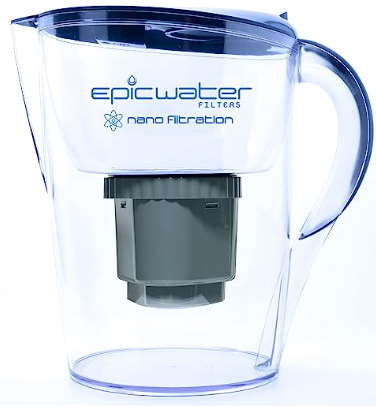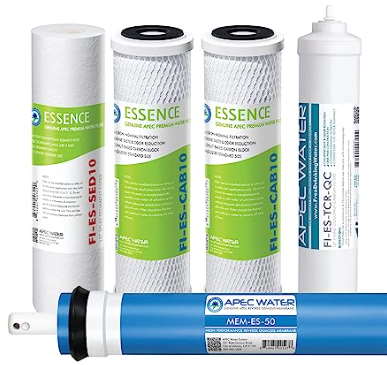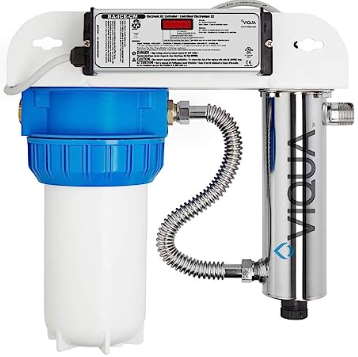A whole apartment water filter system is a great way to ensure that your entire home is receiving clean and safe water. This type of system will filter the water before it enters your home and then filter it again at each tap and showerhead in the house.
This type of system typically consists of a pre-filter, reverse osmosis filter, and carbon filter. The pre-filter will remove large particles from the water, while the reverse osmosis filter will remove contaminants such as lead and other metals. The carbon filter will then remove any remaining impurities, leaving you with clean and safe water. This type of system is an ideal choice for those who want to ensure that their entire home is receiving clean and safe water.
Water filters are essential for households and businesses relying on clean and safe water for drinking, cooking, and cleaning. Water filters remove impurities, such as chlorine, lead, mercury, and other contaminants, from drinking water. These filters also reduce the taste and odor of the water.
There are several types of water filters available, such as activated carbon filters, reverse osmosis filters, and ultraviolet (UV) light filters. Each type of filter has its own benefits and limitations. Activated carbon filters are one of the most common types of filters and are effective at removing chlorine and other organic compounds from water. Reverse osmosis filters are more expensive but are very effective at removing most inorganic compounds and dissolved solids. UV light filters are the most effective at removing bacteria, viruses, and other microbes from water.
Importance of using a water filter
Using a water filter is beneficial in several ways. Filtered water can be healthier to drink and more pleasant tasting. It can also help protect your plumbing from corrosion and scale buildup, and it can even help reduce energy costs. Installing a water filter is relatively easy and can be done in the afternoon.
Overall, water filters are a great way to make sure that the water you are drinking and using is as safe and clean as possible. By taking the time to research the different types of filters available, you can make sure that you are using the right filter for your needs.
Filtering drinking water is important for several reasons:
- Removing contaminants: Water can contain various contaminants such as chemicals, bacteria, viruses, and parasites that can cause health problems. Filtering water can remove these contaminants and make it safer to drink.
- Improving taste and odor: Water can have an unpleasant taste or odor due to the presence of chlorine, sulfur, or other chemicals. Filtering can improve the taste and odor of water and make it more palatable.
- Protecting plumbing: Contaminants in water can also damage plumbing and appliances over time. Filtering water can prevent the buildup of minerals and other substances that can cause corrosion and other damage.
- Cost-effectiveness: While bottled water may seem like a convenient option, it can be expensive and generate a lot of plastic waste. Filtering water at home is a cost-effective and environmentally friendly alternative.
Overall, filtering drinking water can help ensure that it is safe, healthy, and enjoyable to drink.
Water filter types
There are several types of water filters available on the market, each with its own advantages and disadvantages. Here are some of the most common types of water filters:
Pitcher filters
These are simple and inexpensive filters that use activated carbon to remove contaminants from water. They are easy to use and require no installation, but they may not be as effective as other types of filters.
Pitcher filters are an essential tool for anyone who wants to make sure their drinking water is as clean and safe as possible. They are designed to remove impurities from tap water, such as chlorine, lead, and other contaminants. They also reduce the amount of sediment that can build up in the pipes of your home’s plumbing system.

Pitcher filters work by using a filter cartridge that is inserted into the base of the pitcher. The filter cartridge contains activated carbon, which is a porous material that can absorb and filter out particles from the water. As the water passes through the filter, the activated carbon removes impurities, leaving behind clean and safe drinking water.
Pitcher filters are available in a variety of sizes and styles, so you can find one that fits your needs. Some pitchers have a built-in filter, while others require a separate filter cartridge. When selecting a filter, it is important to consider the size of your pitcher and the type of contaminants you want to remove.
Pitcher filters are relatively inexpensive and easy to maintain. They should be replaced every few months, or when the filter looks worn or discolored. Since they are designed to filter out impurities, it is important to use the type of filter recommended by your local water utility. This will ensure that your drinking water is safe and clean.
Faucet-mounted filters
These attach directly to your faucet and use activated carbon to remove contaminants. They are easy to install and convenient, but may slow down water flow and may not remove all contaminants.
Faucet-mounted filters are a convenient and affordable way to get filtered water straight from your tap. These filters attach directly to your kitchen faucet and provide filtered water on demand. They are a great alternative to buying bottled water, as they provide the same quality water without the expense or environmental impact.
Faucet-mounted filters usually contain carbon or another type of filter material to reduce contaminants like chlorine, lead, and other contaminants that can affect the taste and smell of your water. Many filters also contain additional features like a built-in aerator to reduce water waste and a shut-off valve to prevent water from flowing when the filter needs to be replaced.
These filters are easy to install and maintain, and most can be used for several months before needing to be replaced. When it’s time to replace the filter, most manufacturers provide easy-to-follow instructions.
Faucet-mounted filters can save you money, help reduce your environmental impact and provide you with fresh, clean water on demand. If you’re looking for an easy and affordable way to get filtered water, a faucet-mounted filter may be the best option for you.
Reverse osmosis filters
These use a semi-permeable membrane to remove impurities from water. They are highly effective and can remove a wide range of contaminants, but can be expensive and require professional installation.
Reverse osmosis filters are a type of water filtration system that uses a semi-permeable membrane to remove dissolved impurities and other contaminants from water. The process works by forcing water through the membrane, which allows only pure water molecules to pass through while trapping the contaminants on one side. This type of filter is commonly used in both residential and commercial applications to produce purified drinking water.

Reverse osmosis filters offer many benefits over other filtration systems. For starters, they are highly effective at removing a wide range of contaminants, including bacteria, viruses, heavy metals, and chemicals. Furthermore, they require minimal maintenance and can be relatively inexpensive to install. Reverse osmosis filters can also produce water that has a higher pH level than regular tap water, which can be beneficial for people with sensitive stomachs.
Despite their effectiveness, reverse osmosis filters are not perfect. They can be slow to filter water and require a greater amount of energy to operate than other filtration systems. Additionally, with regular use, they may require frequent filter changes, which can be expensive. As such, while they are a great option for providing clean drinking water, it is important to weigh the pros and cons before investing in a reverse osmosis filter.
Ultraviolet (UV) filters
These use UV light to kill bacteria and other microorganisms in water. They are effective at disinfecting water but do not remove other contaminants.
Ultraviolet (UV) filters are filters designed to protect against the harmful effects of ultraviolet (UV) radiation. These filters are used in a variety of applications, including sunglasses, camera lenses, protective eyewear, and more.

UV filters are designed to either absorb, reflect or scatter UV light. Absorbing filters absorb UV radiation, converting it into heat energy. Reflecting filters reflect UV radiation away from the user. Scattering filters scatter UV radiation in multiple directions, reducing its intensity.
UV filters are typically made from plastic or glass and are available in a variety of shapes and sizes. The type of filter you choose will depend on the application. For example, sunglasses typically use absorbing filters, while camera lenses typically use reflecting or scattering filters.
UV filters are an important part of protecting yourself from the harmful effects of UV radiation. They can be used to reduce the risk of sunburn, skin cancer, and other health risks associated with UV exposure. They can also help to reduce glare and improve visibility.
Gravity-fed filters
These use gravity to filter water through a series of layers, including activated carbon and ceramic filters. They are effective at removing contaminants, but can be slow and may require frequent cleaning.
Gravity-fed filters are a type of water filter that uses the force of gravity to draw water through one or more filtration media. These filters are typically simple, low-cost, and low-maintenance, making them a popular choice for many people.
Gravity-fed filters work by placing a container of untreated water, such as a bucket, above a filtration system. A valve is opened to allow the water to flow down through the filter and into a lower container. The filter media captures impurities and other contaminants in the water, leaving only clean, safe water for drinking.
Gravity-fed filters can be used to filter a variety of liquids, including water, juice, and beer. They are often used in developing countries, where access to clean water is limited. Gravity-fed filters are also popular with campers, preppers, and other people who need access to clean water in remote or rural areas.
Gravity-fed filters have several advantages. They are easy to use, require no electricity or plumbing, and are relatively inexpensive. They are also highly efficient, as they can filter out particles as small as 0.5 microns. This makes them ideal for removing bacteria and protozoa, as well as organic and inorganic contaminants.
Gravity-fed filters can also be used in reverse osmosis systems, where the filter media removes dissolved solids and other contaminants from the water. This can be a more efficient and cost-effective way to purify water, as the filter media can be reused multiple times.
Gravity-fed filters are a simple, effective, and affordable way to get clean, safe water. They are a popular choice for many people, from campers and preppers to those living in developing countries.
Whole-house filters
These are installed at the point where water enters your home and filters all the water that comes into your house. They can remove a wide range of contaminants and protect plumbing and appliances, but are expensive and require professional installation.
A whole-house filter is an add-on to your existing water filtration system that is installed at the point of entry (POE) to your home. The filter works with your existing water system to filter out sediment, rust, chlorine, and other impurities from your water supply before it enters your home.
Whole-house filters are important because they provide clean, safe drinking water at each and every faucet in your home. This is especially important if you have an older home with older pipes, where the water may not be as clean as it once was. Whole-house filters are also great for families with young children, who may be exposed to higher levels of contaminants in the water.
Whole-house filters are easy to install and maintain, and they come in a variety of sizes to meet the needs of any home. They are also cost-effective, as they can save you money on bottled water and other costly water treatments.
If you are looking for a way to make sure your family has clean, safe drinking water, then a whole-house filter is a great option.
Check for Under-sink water filter systems.
Choosing the right type of filter depends on your specific needs and budget. It’s important to research different options and read reviews before making a purchase.
Conclusion
Whole-house filters are an effective option for those who want to filter all the water that comes into their homes. These filters can remove a wide range of contaminants and protect plumbing and appliances from damage. However, they are more expensive than other types of filters and require professional installation.
Whole-house filters are a good option for those who live in areas with high levels of contaminants in their water or who have concerns about the quality of their water. They can provide peace of mind and ensure that all the water in your home is safe and healthy to use.
It’s important to choose a whole-house filter that is appropriate for your specific water source and needs. It’s also important to regularly maintain and replace the filter cartridges to ensure that the filter is working effectively. Overall, a whole-house filter can be a worthwhile investment for those who prioritize the quality of their water.
You should read about the well-water filter system also.
